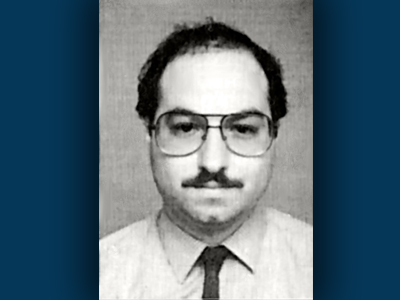March 4, 1987
Jonathan Pollard is sentenced to life in prison for espionage. Pollard, a Naval Investigative Service analyst, spied for Israel in 1984 and 1985, providing Israel with nuclear, military and technical information on the Arab states, Pakistan and the Soviet Union.
Stealing an estimated 800 documents and 1,500 intelligence summaries from the time he was recruited by Israeli Air Force officer Aviam Sella in May 1984, he was arrested with his wife in November 1985 while trying to enter the Israeli Embassy in Washington. The incident created great strain between the United States and Israel. In December 1985, Israeli Prime Minister Shimon Peres agreed to allow the Israelis involved in the operation to be questioned by American officials. In June 1986, Pollard pleaded guilty to espionage charges in exchange for a limited prison sentence for his wife, Annie.
Between June 1986 and his sentencing March 4, 1987, the U.S. government entered two victim impact statements into the case. The two statements argued that Pollard had threatened U.S. relations with Arab states and diminished American leverage with Israel. On March 3, 1987, Secretary of Defense Caspar Weinberger told the court, “It is difficult for me, even in the so-called ‘year of the spy,’ to conceive of a greater harm to national security than that caused by the defendant in view of the breadth, the critical importance to the U.S. and the high sensitivity of the information he sold to Israel.”
Despite his plea agreement with the government and never having a trial, Pollard is sentenced to the maximum penalty of life in prison. Two separate Israeli investigations find that both Sella and Rafael Eitan, head of an independent intelligence unit, had exceeded their authority in recruiting and working with Pollard. Both investigations criticize the Israeli government for errors in judgment.
In December 2012, newly declassified documents once again raise questions about the severity of Pollard’s sentence and bring new calls for President Barack Obama to commute the sentence. Those in favor of reducing Pollard’s sentence argue that it is not in line with others accused of spying for American allies.
After multiple pleas to have Pollard released from prison, the U.S. government announces in July 2015 that it will not oppose his parole in November 2015. He is released Nov. 20, 2015. In December 2020, he and his wife move to Israel.



